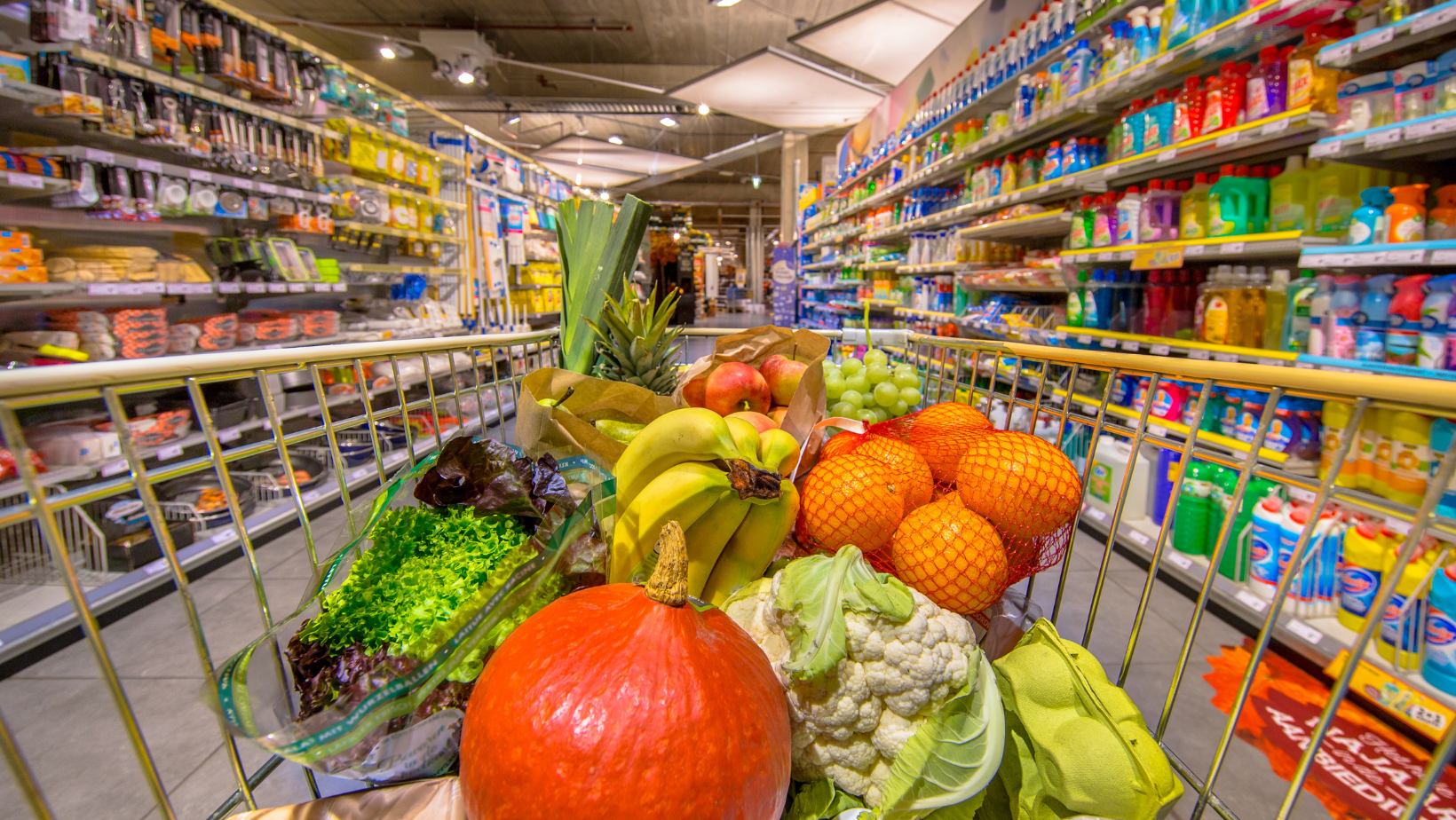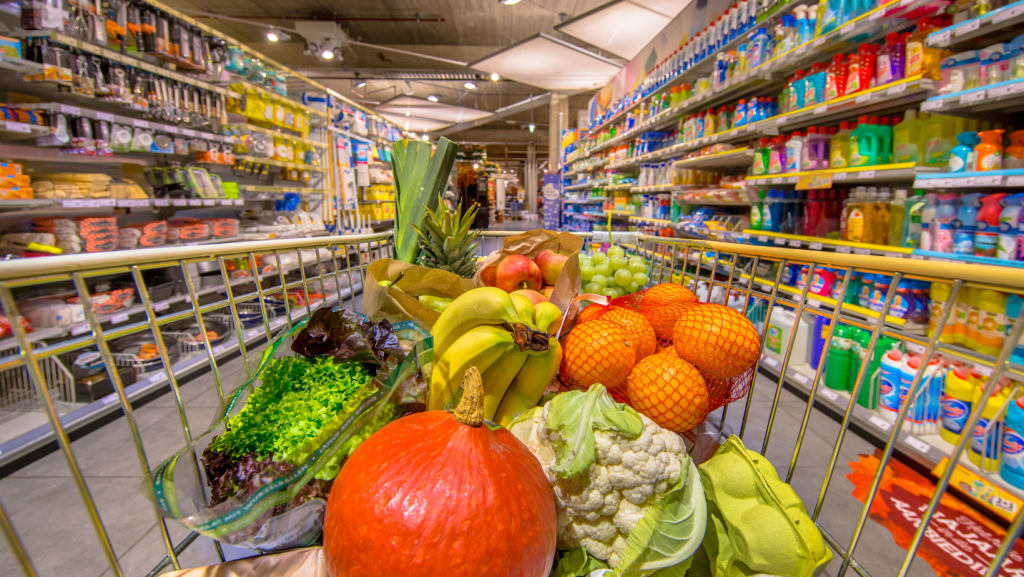
- The Savvy Promise
At Savvy, our mission is to empower you to make informed financial choices. While we maintain stringent editorial standards, this article may include mentions of products offered by our partners. Here’s how we generate income.
In this article
As part of Savvy’s ongoing research into consumer sentiment and the impact of economic trends on everyday Australian life, we survey Australian adults on how they are navigating the continuing cost of living crisis.
- 62% of Australians cite grocery prices as the greatest ongoing concern
- Almost all demographics and states/territories highlight grocery prices as the biggest issue
- 68% of people surveyed said they are cutting back on non-essential expenses to make ends meet
- 67% of women and 58% men cite cost of groceries as biggest concern
Considering the cost of living, what recurring expenses cause you the greatest concern? (by gender)
| Total | Male | Female | Other | |
|---|---|---|---|---|
| Total | 1000 (100%) | 499 (100%) | 497 (100%) | 4 (100%) |
| Mortgage repayments | 312 (31%) | 154 (31%) | 158 (32%) | - |
| Petrol/Fuel | 466 (47%) | 236 (47%) | 228 (46%) | 2 (50%) |
| Utility bills | 463 (46%) | 237 (47%) | 226 (45%) | - |
| Rent and rent increases | 253 (25%) | 118 (24%) | 132 (27%) | 3 (75%) |
| Insurance | 247 (25%) | 107 (21%) | 140 (28%) | - |
| Internet & phone | 74 (7%) | 30 (6%) | 44 (9%) | - |
| Cost of groceries / food | 622 (62%) | 287 (58%) | 322 (67%) | 3 (75%) |
| Other | 24 (2%) | 13 (3%) | 11 (2%) | - |
| None | 26 (3%) | 18 (4%) | 7 (1%) | 1 (25%) |
(Respondents choose top 3) Source: Savvy's 2024 Cost of Living Survey
A representative national survey of 1,000 adult Australians has revealed that 62% of respondents say that the cost of groceries or food has caused the greatest amount of concern amid the cost-of-living crisis.
Petrol or fuel was the second biggest concern (47%) with utility bills coming in a close third (46%).
Far more women (67%) considered food and groceries their greatest concern in comparison to men (58%.)
All demographics except the 18-24-year-old cohort cited groceries as their primary concern; the 18-24s said that petrol or fuel costs as the biggest cost-of-living concern (61%).
For the 35-44s, groceries (58%) and mortgage repayments (57%) were almost of equal importance. All demographics over the age of 45 said that groceries were the biggest issue followed by utility bills. Respondents in all states and territories showed a clear majority for groceries being the biggest cost-of-living issue.
Considering the cost of living, what recurring expenses cause you the greatest concern? (by age group)
| 18 - 24 | 25 - 34 | 35 - 44 | 45 - 54 | 55 - 64 | 65+ | |
|---|---|---|---|---|---|---|
| Total | 120 (100%) | 192 (100%) | 171 (100%) | 163 (100%) | 150 (100%) | 204 (100%) |
| Mortgage | 14 (12%) | 82 (43%) | 97 (57%) | 61 (37%) | 41 (27%) | 17 (8%) |
| Petrol/Fuel | 73 (61%) | 71 (37%) | 72 (42%) | 77 (47%) | 75 (50%) | 98 (48%) |
| Utility bills | 27 (22%) | 80 (42%) | 66 (39%) | 88 (54%) | 83 (55%) | 119 (58%) |
| Rent | 57 (48%) | 69 (36%) | 38 (22%) | 36 (22%) | 30 (20%) | 23 (11%) |
| Insurance | 22 (18%) | 26 (14%) | 27 (16%) | 43 (26%) | 49 (33%) | 80 (39%) |
| Internet & phone | 24 (20%) | 13 (7%) | 6 (4%) | 9 (6%) | 9 (6%) | 13 (6%) |
| Groceries / food | 65 (54%) | 116 (60%) | 100 (58%) | 102 (63%) | 96 (64%) | 143 (70%) |
| Other | 3 (2%) | 3 (2%) | 2 (1%) | 3 (2%) | 4 (3%) | 9 (4%) |
| None | 6 (5%) | 4 (2%) | 4 (2%) | 3 (2%) | 2 (1%) | 7 (3%) |
(Respondents choose top 3) Source: Savvy's 2024 Cost of Living Survey
Despite headline inflation or the Consumer Price Index easing to 5.4% in the September quarter 2023, it’s still double the Reserve Bank of Australia’s inflation target of 2-3%. As a lever against inflation, the RBA raised interest rates from a record low of 0.1%p.a. to 4.35%p.a. over 2022 to 2023, with 10 consecutive rises from May 2022 to March 2023.
Over two-thirds (68%) of Australians are cutting back on non-essential expenses to deal with rising costs of living, broken down into 63% of men and 73% of women. 58% said they were seeking cheaper alternatives to higher-priced items, while 20% said they were seeking additional sources of income. Only 7% said they weren’t making any adjustments.
How are you adjusting to the rising cost of living? (by gender)
| Primary Keyword | Total | Male | Female | Other |
|---|---|---|---|---|
| Total | 1000 (100%) | 499 (100%) | 497 (100%) | 4 (100%) |
| Cutting back on non-essential expenses | 680 (68%) | 316 (63%) | 362 (73%) | 2 (50%) |
| Exploring cheaper alternatives | 582 (58%) | 279 (56%) | 301 (61%) | 2 (50%) |
| Seeking additional sources of income | 204 (20%) | 93 (19%) | 111 (22%) | - |
| Not making any adjustments | 74 (7%) | 53 (11%) | 20 (4%) | 1 (25%) |
(Respondents choose top 3) Source: Savvy's 2024 Cost of Living Survey
Savvy spokesperson and money expert Bill Tsouvalas says that it is no surprise that food is the biggest cost of living issue for most Australians.
“While rising cost of expenses such as rent, mortgage repayments or even fuel are big issues, none affects everyone in the same way as food does. We all need to eat and the hike in grocery bills is both dramatic and obvious. To save on groceries, people will no doubt already be buying more generic brand items, shopping at bulk outlets and waiting for specials. The issue is that even by doing so, the savings are not enough to reduce financial pressure on many individuals and families.”
How are you adjusting to the rising cost of living? (by gender)
| 18 - 24 | 25 - 34 | 35 - 44 | 45 - 54 | 55 - 64 | 65+ | |
|---|---|---|---|---|---|---|
| Total | 120 (100%) | 192 (100%) | 171 (100%) | 163 (100%) | 150 (100%) | 204 (100%) |
| Cutting back on non-essential expenses | 64 (53%) | 134 (70%) | 123 (72%) | 117 (72%) | 103 (69%) | 139 (68%) |
| Exploring cheaper alternatives | 64 (53%) | 109 (57%) | 101 (59%) | 108 (66%) | 84 (56%) | 116 (57%) |
| Seeking additional sources of income | 38 (32%) | 55 (29%) | 38 (22%) | 27 (17%) | 20 (13%) | 26 (13%) |
| Not making any adjustments | 6 (5%) | 5 (3%) | 12 (7%) | 12 (7%) | 11 (7%) | 28 (14%) |
(Respondents choose top 3) Source: Savvy's 2024 Cost of Living Survey
Compare the Market Economic Director, David Koch said:
"Australian consumers are doing the right thing in the battle against inflation. They have been asked to tighten their belts and they are doing exactly that.
"If you exclude the COVID period, retail sales are growing at the weakest pace on record. And it looks set to stay that way: very weak consumer sentiment figures show shoppers are very concerned about the impact of high inflation and higher-for-longer interest rates.
"But despite their efforts, inflation is proving stickier than expected and that means homeowners really can’t bank on interest rates coming down any time soon.
"Any further rate hikes would come as an enormous blow to families who had been holding out for reductions this year. If rates were to rise again, it would be a very tough end to the year for anyone who is already experiencing mortgage stress.
"There's a whole generation of borrowers who have never experienced rates this high, but also have sizeable debts due to the steep rise in house prices since the pandemic.
"The message is clear: don’t wait for the RBA to move on rates. Start comparing home loans now and see if you can create your own rate cut by switching to a better offer."
Why are we in a cost-of-living crisis?
The primary reason Australians are living through a cost-of-living crisis is due to high levels of inflation in the greater economy. Inflation is an increase in the money supply which increases prices at a faster pace than interest on deposits or growth in wages. This decreases the purchasing power of your dollar over time, meaning you need more dollars to buy the same items or services, such as Internet access or utilities.
For example, a basket of goods priced at $100 a year ago may cost $110 today – though you will need to come up with that additional $10 from earning more income or using your savings.
One major way to combat inflation is to decrease the availability of money though increasing interest rates. The Reserve Bank increased rates from 0.1%p.a. to 4.35%p.a. over 2022 to 2023. These rises also flows on to mortgages, personal loans, and credit cards. It should also flow to interest on deposits.
As demand eases and people tend to save more, prices tend to fall. The RBA’s inflation target ranges between 2-3%. Right now, inflation is at 5.4%.
Although, for mortgage holders, they will also need to come up with more money to cover their repayments (if they are on variable rate home loans.) Coupled with high inflation, this means they must come up with more money to maintain a certain standard of living.
Ways to save money during a cost-of-living crisis
There are several ways you can save money during a cost-of-living crisis which you can use right now.
You can save money on utilities by switching high-energy halogen or incandescent light bulbs with efficient LEDs. You can also plug in appliances usually on standby into smart switches or foot switches, to turn them off completely and save significantly. One sure fire way is to compare your current energy plan with others in the market – if you haven’t shopped around in a while, this may save you quite a lot.
When heating or cooling, adjusting your temperature settings by one degree saves 10% in energy consumption.
The primary concern for households is the cost of groceries. Buying in bulk – especially non-perishables such as toilet paper or long-life foods such as rice and pasta – can save your family bundles in the short-to-long term. Preparing your meals ahead of time also reduces reliance on fast food – sometimes feeding a family of four at the drive-thru costs as much as four to five meals made with fresh ingredients!
Another idea is to audit all your subscription services to either get rid of them if you aren’t using them or switch to plans with lower costs or greater value (hopefully both!) Combining car and home insurance may give you a discount on both, the same goes for bundling home internet and mobile phone plans. Try to stretch your dollars as far as they can go – and devote any excess to saving for a holiday or big-ticket item, or paying down debts.
If in need of a loan to consolidate debts or to cover expenses, learn more here.
Savvy 2024 Cost of Living Survey; n=1000
Nationally representative survey of 1000 adult Australians, aged 18 and over. Conducted by Octopus Group, on behalf of Savvy.
Completion date: 6/12/2023
Age groups:18-24, 25-34, 35-44, 45-54, 55-64, 65+
Gender breakdown: male n=499, female n=497, non-binary /prefer not to say n=4
Representative of state and territory populations:
NSW n=323 (32.3%), Vic n=251 (25.1%), Qld n=202 (20.2%), SA n=72 (7.2%), WA n=106 (10.6%) NT n=7 (0.7%), Tas n=22 (2.2%), ACT n=17 (1.7%)
Did you find this page helpful?
Author
Adrian EdlingtonReviewer
Bill Tsouvalas Commentary by
Commentary by 
Guest Contributor
David Koch "Kochie"Koch is the author of several personal finance books, including the bestseller "11 Step Money Plan for a Better Life." He's putting his knowledge to work at a critical time when many are grappling with rising costs for insurance, energy, and home loans.
Together, Koch and Compare the Market are on a mission to make price comparison a household habit, helping Australians find savings wherever possible.
Published on January 11th, 2024
Last updated on May 16th, 2024
Fact checked
This guide provides general information and does not consider your individual needs, finances or objectives. We do not make any recommendation or suggestion about which product is best for you based on your specific situation and we do not compare all companies in the market, or all products offered by all companies. It’s always important to consider whether professional financial, legal or taxation advice is appropriate for you before choosing or purchasing a financial product.
The content on our website is produced by experts in the field of finance and reviewed as part of our editorial guidelines. We endeavour to keep all information across our site updated with accurate information.











